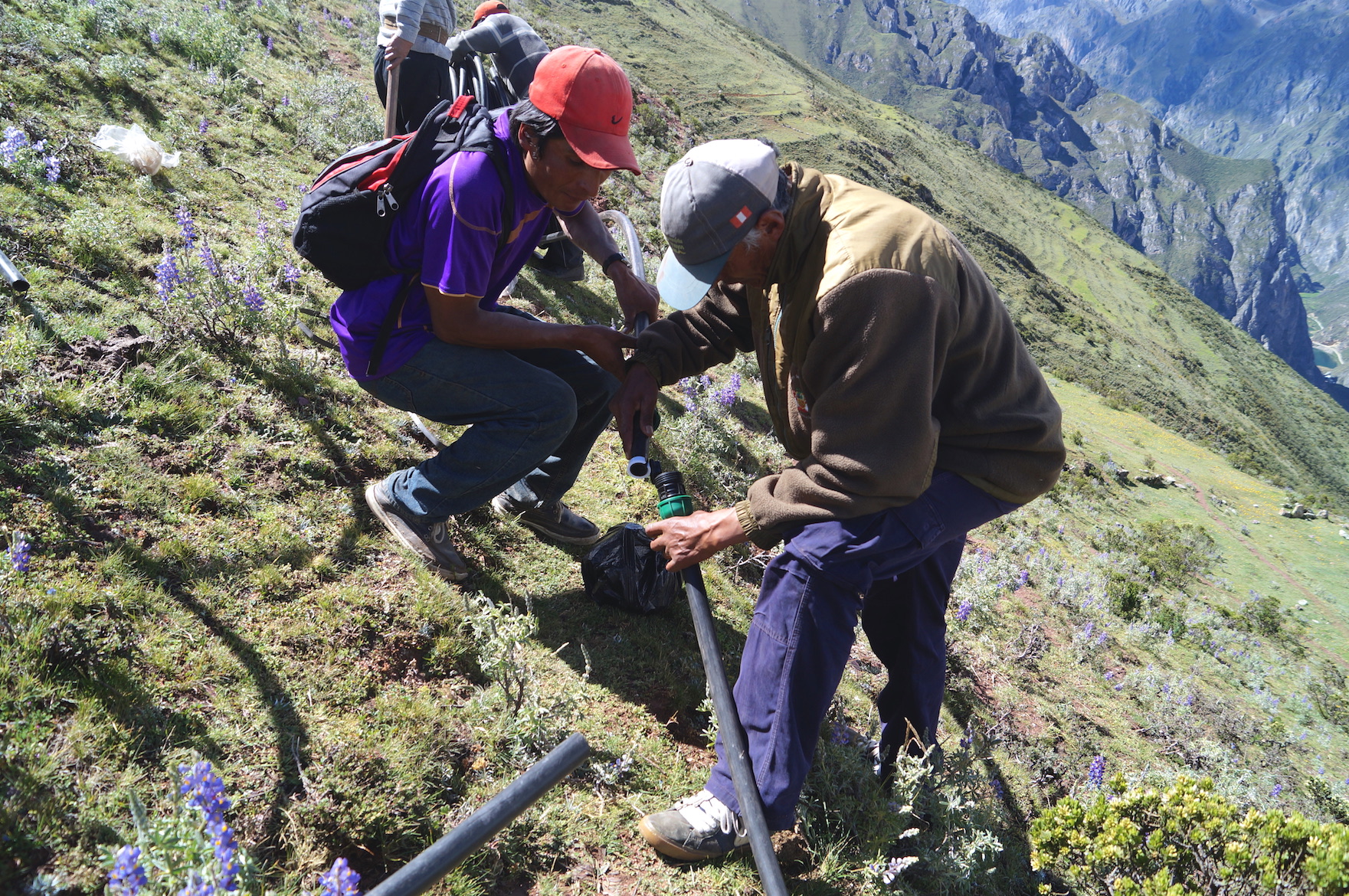

L'objectif principal de la composante "renforcement des capacités et des connaissances locales" était de fournir des connaissances techniques pour la gestion et la conservation de l'eau, des pâturages naturels et du bétail. Nous nous sommes concentrés sur l'information des membres de la communauté et des gardes du parc par le biais d'ateliers d'évaluation et de sessions de formation sur des sujets tels que la clôture des pâturages, la gestion de l'eau et la distribution de l'eau. Un modèle 3D de la communauté de Miraflores a été développé de manière participative afin de faciliter la planification de la gestion des pâturages et de l'eau sur le territoire communal. Des informations ont été recueillies au cours d'évaluations rurales participatives. Ces évaluations comprennent des études spécifiques axées sur l'eau, les pâturages, l'archéologie, l'organisation sociale, la productivité agricole et animale.
- Utilisation d'outils de communication pour accroître la sensibilisation et la compréhension du projet au niveau local
- Connaissances locales et traditionnelles et dialogue avec les experts extérieurs : la participation locale et les interactions positives entre les habitants et les experts extérieurs ont permis une communication efficace entre eux.
- Approche participative et méthodologie de recherche-action participative
- Les chercheurs locaux ont servi de pont entre le projet et l'ensemble de la communauté.
- Il est essentiel que l'équipe de terrain soit formée à l'application de l'approche participative, à l'utilisation d'outils participatifs et à la facilitation de l'apprentissage collectif.
- Diversifier le travail avec les partenaires locaux - combiner les ateliers avec d'autres méthodes, des outils pratiques et le travail sur le terrain ("apprendre par la pratique").
- Développer des activités qui impliquent les femmes, les jeunes et d'autres groupes au sein de la communauté.
- Maintenir un niveau élevé de présence sur le terrain et partager le travail quotidien avec la communauté.
- Fournir une formation plus pratique pendant le travail sur le terrain.
- Les stratégies de communication ont permis de diffuser les réalisations et les progrès en cours du projet. Ces mises à jour ont été bien accueillies et ont eu un bon impact. Les vidéos participatives et le théâtre "Night of Art" en sont des exemples.